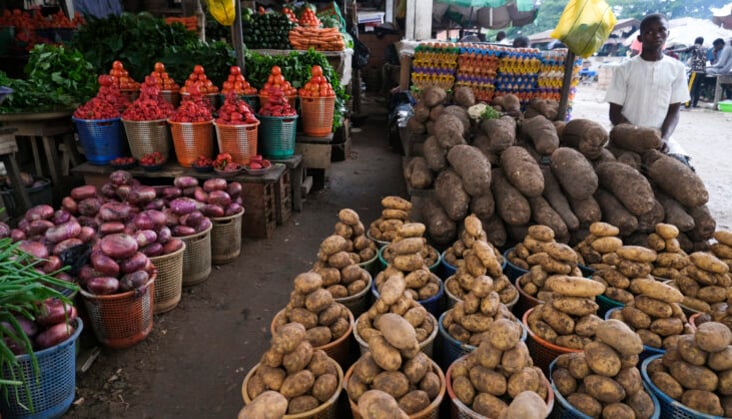When the Nigeria Bureau of Statistics, NBS. released it’s latest report on inflationary trend, the position of some states raises concerns about the real causes of hike in prices of food items. This is because the factors indicated as major causes of rising cost of food items are not known to be prevalent in some of the ststates. For instance, Edo and Cross River states, both in the southsouth geopolitical zone, which are said to top the list of states where food is most expensive, are not known to be seriously affected by the scourge of insecurity.
Perhaps Kogi state, said to be one of the states at the top of the list, could be one of the states bedevilled with insecurity because of cases of kidnapping, banditry and herders/farmers clashes. But the three states are classified as the top states where food is most expensive in Nigeria. And that is the official position as contained in the Consumer Price Index report released by the National Bureau of Statistics on Monday.
It is a fact that the current economic crisis in the country has pushed the cost of living to an unprecedented level. It was, however, not expected that where insecurity, banditry and other nefarious activities of non-state actors are cited as reasons for food inflation the states known to be under intense pressure from terrorism and other violent acts would yield to states not known for the upsets where the direct impacts are concerned.
That, however, is not to state that everywhere in the country are not feeling the weight of food insecurity. BUSHLINK had earlier reported that the June headline inflation rose to an all-time high of 34.19 per cent, following a surge in food inflation by 40.87 per cent.
Analysis of the data by BUSHLINK showed that the inflationary pressure on states was not uniform in the period under review.
According to the report, Edo overtook Kogi State as the most expensive state with food inflation at 47.34 per cent.
Kogi food inflation was put at 46.37 percent while Cross River, Kwara and Ekiti food inflation stood at 45.28 per cent, 44.57 per cent and 44.50 per cent respectively.
Gombe experienced a significant rise to 43.67 per cent in food inflation while Enugu state joined the list with inflation rates at 43.55 per cent.
Subsequently, food inflation was lowest in Nasarawa state at 29.32 per cent.
This development could imply that the states concerned are lagging behind in food production. In which case they rely more on food brought in from areas hit by insecurity, and which when food production gets adversely affected would first care for own residents before sending food out to other states.
The NBS said food inflation on a year-on-year basis was caused by increases in prices of millet whole grain, garri, guinea corn, etc (bread and cereals Class), yam, water yam, coco yam among others.
NBS said, “On a month-on-month basis, the food inflation rate in June 2024 was 2.55 per cent which shows a 0.26 percent increase compared to the rate recorded in May 2024 (2.28 per cent).”
In May last year, President Tinubu removed fuel subsidies which led to hike in energy cost while the Central Bank of Nigeria floated the currency leading to the depreciation of the currency to N1,560 per dollar.
Also, banditry and kidnapping in the food-producing hub of the country have persisted as farmers for years do not have access to their farmlands. In some areas,farmers pay fines to bandits to access their farms.












